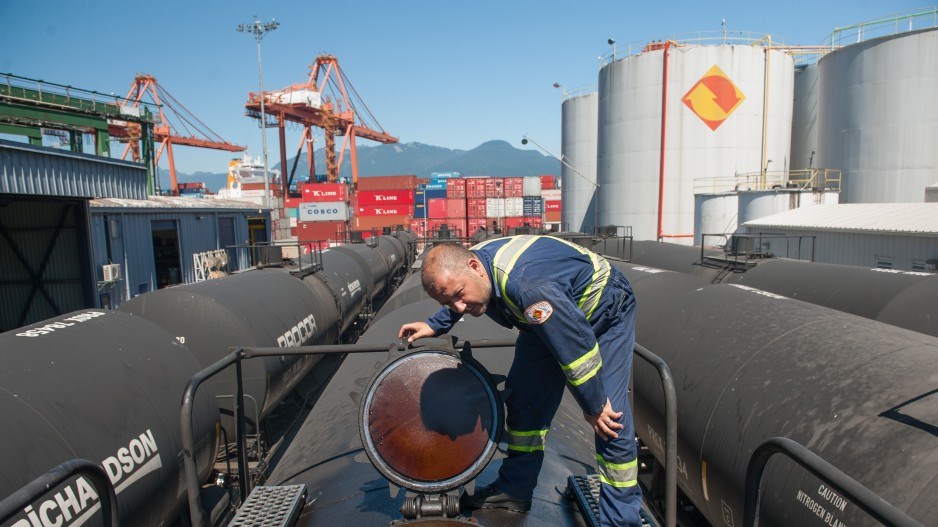West Coast Reduction Ltd. was recycling long before environmental sustainability was a consideration.
The company is now instrumental in helping B.C. achieve its greenhouse gas reduction targets by supporting next-generation biofuel production.
West Coast Reduction is the largest supplier of liquid renewable fuel feedstocks in Western Canada, supplying Parkland, an independent supplier and marketer of fuel and petroleum products, with the raw materials used to produce next-generation renewable fuels in B.C.
“Three years ago, companies like Parkland weren’t our partners. Now they’re our largest customers, which I think says a lot about the changing nature of our industry,” says Jared Girman, director of government relations and strategic initiatives at West Coast Reduction.
Each year, West Coast Reduction refines 250,000 metric tons of raw materials that is supplied to biofuel production. Their facility on the Port of Vancouver is the only location in Western Canada with the storage and refining capabilities to fit these demands.
“In the past two years, there has been a real shift in the industry. A lot of what we produce now goes to biofuel,” Girman says.
Parkland was a traditional oil refinery before shifting to co-processing.
Co-processing involves taking a bio feedstock such as tallow—which West Coast Reduction supplies—and co-firing it in the system along with traditional crude oil to produce a blended, lower carbon fuel product.
One of the Clean BC mandates is to increase the supply of renewable transportation fuels produced in B.C.
“What the company supplies represents a massive percentage of the mandate,” Girman says.
West Coast Reduction is Western Canada’s largest independent rendering company.
The Vancouver-based, family-owned and operated company started over 50 years ago and now conducts operations in Saskatoon, Edmonton, Calgary, Lethbridge, Vancouver and Nanaimo, providing a necessary service to farms, feedlots, restaurants, supermarkets and processors of beef, pork, poultry, and fish.
“The company was founded on the concept of the circular economy before it really existed,” Girman says.
“Our core mission is ‘Nothing Left Behind’. We look to find value where others don’t see it.”
The company takes byproducts from food manufacturing or the agricultural industry that are not fit for human consumption and creates high-quality ingredients out of what would otherwise end up in the landfill.
Rendering includes the processing of grease, fat, meat, or bone from food waste into usable products and avoids 90% of potential greenhouse gas emissions, compared to industrial composting.
The process takes place in a large industrial kitchen, and no chemicals are used when breaking down the byproducts into base raw ingredients.
Through its retail brand Redux, West Coast Reduction also collects food waste from other forms of food production, including collecting byproducts from the bakery industry, such as wasted dough or flour that is no longer consumable. Those products are then re-purposed into animal feed ingredients.
In total, West Coast Reduction recycles roughly 1 billion pounds of raw material every year, which is turned into fats and protein meal products. Those fats and meals contribute to finished products used in various applications, including making ingredients for everything from pet and livestock feed to ingredients used in biofuel.
Rendering these materials reduces greenhouse gas emissions by 320,000 metric tonnes each year and is essential to sustainable agriculture and local food.




